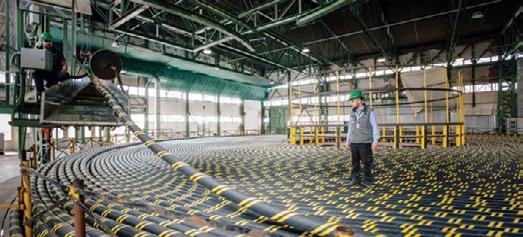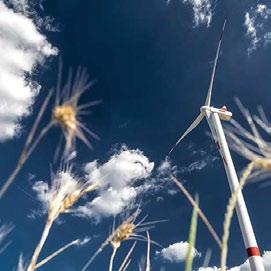
6 minute read
Smarter sustainable telecoms Prysmian
sMarter sustainable telecoMs
The Prysmian Group leads the world in advanced energy and telecom cable systems. The company is proactive in every aspect of power transmission and telecommunications technologies. Philip Yorke reports on a company that continues to build on its enviable reputation as a world leader in sustainability and a dynamic pioneer of innovative, ground-breaking telecoms technologies.

The Prysmian Group’s structure is organised around three key business units: Projects, Energy and Telecoms. Today this diverse high-tech Group operates in the business of underground and submarine cables and systems for power transmission and distribution. It is also active in the manufacture of speciality cables for applications in many different industries. In addition, the Group produces medium and low voltage cables, mostly for the construction and infrastructure sectors.
Prysmian also produces voice, video and data transmission cables and accessories for the telecommunications industry, offering a comprehensive range of optical fibres, optical and copper cables and high-tech connectivity systems. With almost 150 years of experience and sales exceeding 11-billion euros, the company employs more than 30,000 people at its 112 plants worldwide.
Pioneering renewables
Prysmian Group’s work in the renewable energy transmission and distribution sector is often ground-breaking, and it is involved in the development and operation of some of the largest solar and wind

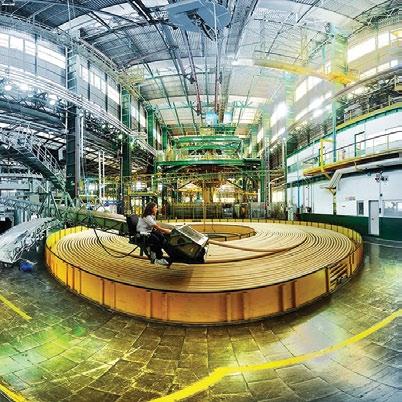


farms in the world. The new projects awarded to Prysmian for the construction of inter-array submarine cable systems have additionally confirmed the competitiveness of the Group’s offering and its countless pioneering, sustainable technologies. Among the recent contracts secured by Prysmian was the Group’s first cable project for a floating offshore wind farm, involving inter-array and export cables for a major floating offshore wind farm.
Furthermore, the Group won contracts to supply submarine cables for the Hornsea 2 project in the UK, the world’s largest offshore wind farm (66kV), and to construct an inter-array submarine cable system between the turbines of the Borssele III and IV wind farms in the North Sea (731.5 MW). Prysmian has also successfully implemented the inter-array cable system for the Wikinger wind farm, located in the West of Adlergrund cluster in the German Baltic Sea. Integration driving growth

The smooth integration of General Cable into the Prysmian Group is a milestone in the Group’s history and a strategic and unique opportunity to create even greater value for its shareholders. Thanks to this union, the new Group will be even better equipped to face and overcome the challenges of the global economic and political environment, along with those of the growing competition in the cable and systems industry.
The General Cable Company recently acquired by Prysmian Group, has been awarded a contract by Northwester NV for the construction of an inter-array submarine cable system to connect the Northwester 2 offshore wind farm, in the North Sea. In another major development in Argentina, the Prysmian Group will supply 3,600 km of cables and a PRY-CAM monitoring system for a new solar farm in Cauchari located 4,100 metres above sea level in one of the world’s most concentrated areas of solar radiation. The 315 MW photovoltaic plant will provide the Argentine grid with an annual average of 660,887 MWh for 20 years.
A central role for sustainability
With its fully integrated group strategy, sustainability plays a central role throughout all Prysmian companies, which are committed to promoting a business model that integrates economic, social and environmental responsibility in all aspects of its business activities. Prysmian promotes a business model based on the concept of shared value. The strength of this approach is the constant monitoring of the Group’s sustainability performance along its entire value
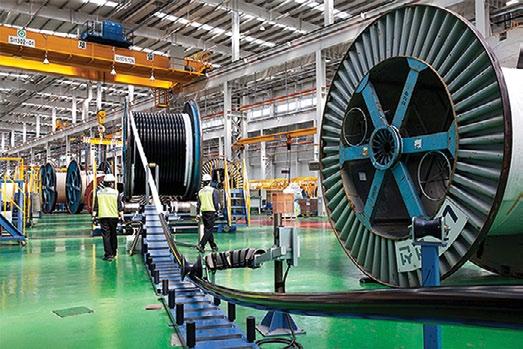
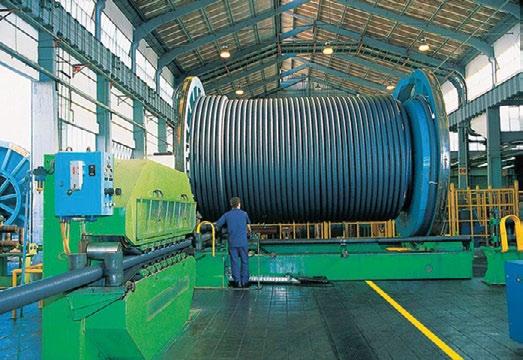
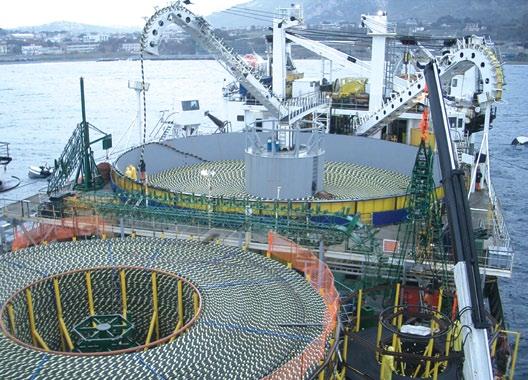
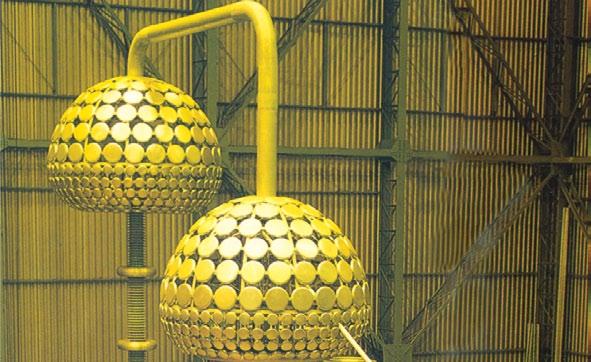
chain, with the aim of not only assessing performance, but also of developing a proactive attitude in all decision making processes, thus enabling it to anticipate and seize new opportunities as they arise. The Group’s bold sustainability strategy is the result of an analysis that considered the context both externally, through the identification of the main trends in the global and sectoral context, and internally, via the priorities expressed by the Compensation, Appointments and Sustainability Committee of the Board of Directors.
The mapping of Prysmian’s sustainability priorities has therefore considered 17 Sustainable Development Goals for 2030 (SDGs) defined by the United Nations, requests from major International Sustainability Indexes (Dow Jones Sustainability Index, FTSE4GOOD, CDP, Bloomberg ESG, etc.) and the needs and expectations of the Group’s stakeholders, mapped each year through stakeholder engagement initiatives undertaken by the Group. The analysis of the above has allowed the Group to establish its strategic priorities, its targets and the actions necessary to achieve its defined sustainability objectives by 2020.
Smarter cable technology
Prysmian Group is currently launching its Pry-ID smart cable technology, which provides easy, real-time access to comprehensive information regarding cable status.
In a scenario in which connected objects represent the present and future for businesses of all kinds, and in a sector such as the cable industry, where products and accessories require constant monitoring, Pry-ID acts as a digital fingerprint for cables.
This makes it possible to provide access through radio-frequency identification technology to the full suite of critical information regarding cables and accessories, including cable type, length, origin and the components to which it is connected. All in a single, easily exportable file, available via the app.
Pry-ID offers significant advantages, such as accurate identification, a very high level of precision and savings on installation time. These activities translate as energy savings and the simple, reliable location of cables and components in buildings, which results in increased safety. It does not require external power and lasts for the entire life of the cable, even in the most difficult environments.
Advanced eV charging
The Prysmian Group has joined the Charging Interface Initiative, or CharIn, the industry group supporting, through standardisation, a super-fast charging infrastructure that allows electric vehicle (EV) drivers to easily and quickly recharge on the road during longdistance trips.
Consumers want to feel reassured that charging stations are as easy to find and use as petrol stations. The automotive industry and CharIn, therefore, have stepped up to back the European “Combined Charging System” (CCS) as the global standard for charging electric powered vehicles. Ultra-fast CCS-standard charging enables EVs to replenish for up to 400 km of range in only 15 minutes with powers ranging from 150 kW to 350 kW.
With CCS, drivers of any type of electric vehicle can choose between normal and fast charging as well as AC and DC. They only need a single system for all these options.
The CCS also has the advantage of being accepted and supported by a significant number of major companies from different industries: CharIn’s founding members include Audi, BMW, Volkswagen, Ford, General Motors, Daimler and Tesla, the leading seller of electric cars, as well as component makers like ABB, Bosch and Siemens. n
For further details of the Prysmian Group’s latest innovative technologies and products visit: www.prysmiangroup.com

